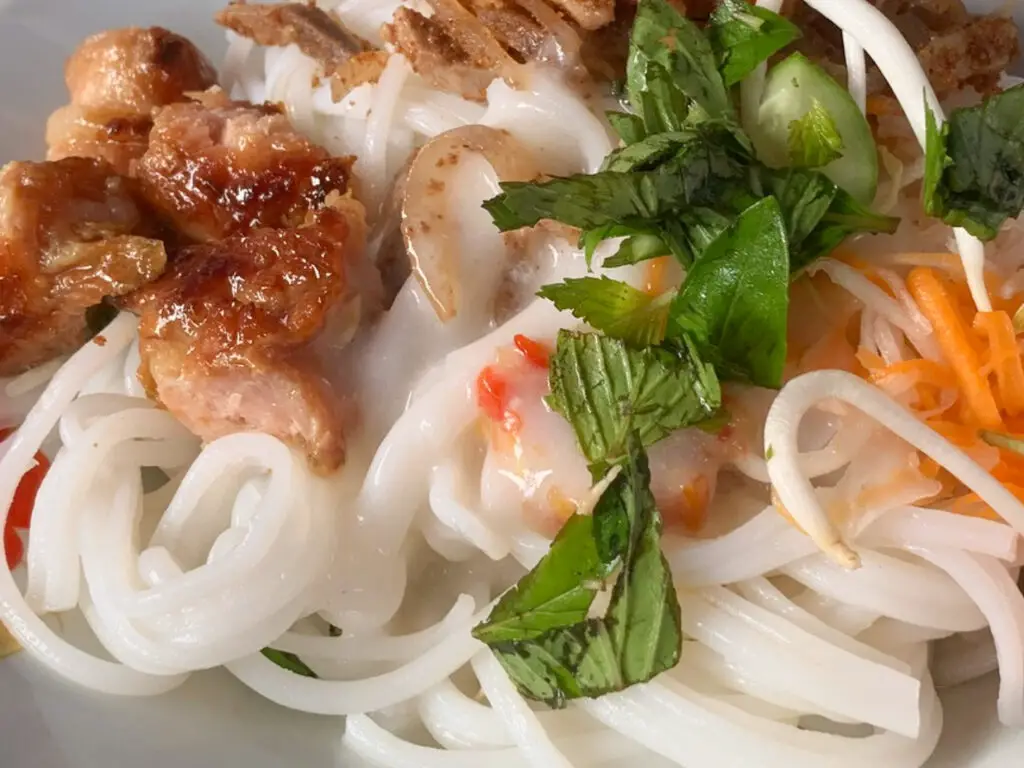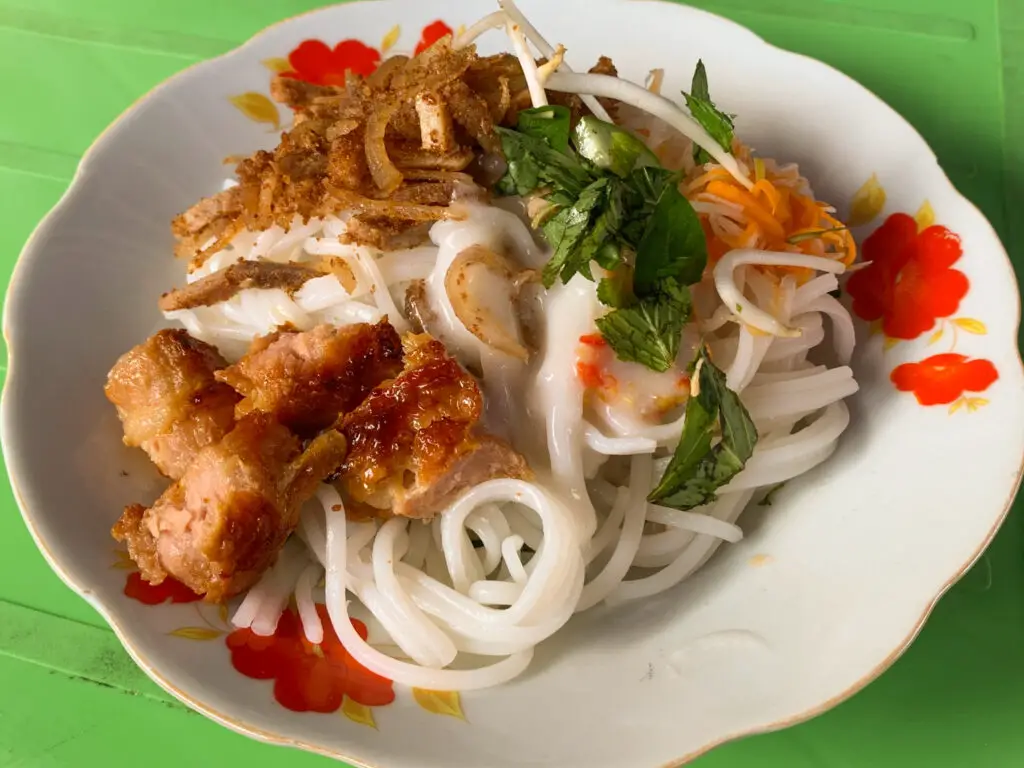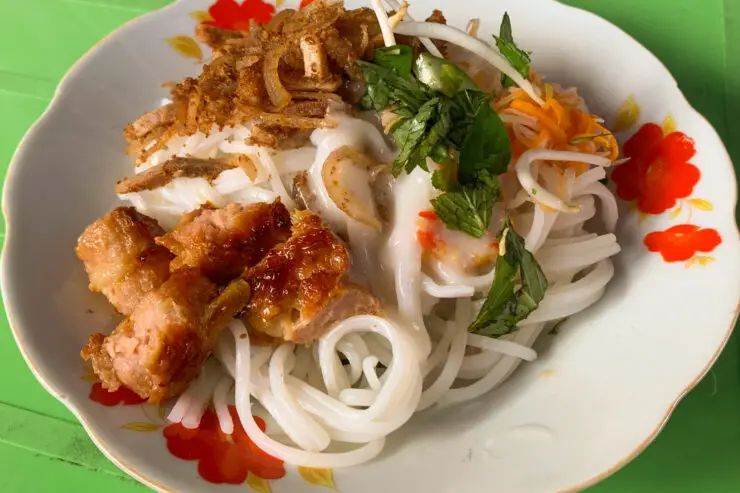As an Amazon Associate I earn from qualifying purchases. Please read the disclaimer for more info.
Banh Tam Bi: Thick Noodles, Pork, and Coconut Milk
I first tasted Banh Tam Bi (Bánh Tằm Bì), a traditional Vietnamese dish from the Mekong Delta, for breakfast at a bustling food market in the small town of Nha Man.
Nha Man is the closest town to our Mekong Delta property, so we often visit the market (Chợ Nha Mân), and it is here that I have discovered many traditional Southern Vietnamese dishes.
I usually enjoy a Banh Mi Xui Mai as we explore the market for fresh vegetables, fruits, and seafood, but I’m glad I found this new dish.
Banh Tam Bi Ingredients
Banh Tam Bi is made with thick, chewy rice noodles (banh tam) topped with pieces of pork and finely shredded pork skin (bi).
Banh Tam also translates to Silkworm cake.
The thick noodles are made with a combination of rice flour and tapioca flour.
It’s served with a generous pour of thick, sweet coconut cream and garnished with various fresh herbs and pickled vegetables.
Each bite is a symphony of textures and flavors—soft, chewy noodles, tender pork, crunchy pickles, and the rich, creamy coconut cream that binds everything together.
It is a balance of sweet and salty taste and is delicious.

Origins of Banh Tam Bi
The Mekong Delta, where this dish originates, is known for its fertile land and abundant produce. Its cuisine reflects the region’s bounty, with dishes like Banh Tam Bi highlighting locally grown ingredients.
I have read that the area of the Mekong Delta where the dish first originated is Bac Lieu, but I have yet to confirm this with the locals.
The use of coconut cream in the dish is a nod to the plentiful coconut groves in the area.
Meanwhile, the fresh herbs and pickled vegetables mirror the region’s love for vibrant, contrasting flavors.
How to Serve Banh Tam Bi
The way Banh Tam Bi is served is just as appealing as its taste. The dish can be presented simply as in Cho Nha Man or with an array of colorful garnishes, including chopped scallions, crushed peanuts, bean sprouts, cucumber, and chili flakes, adding a pop of color and an extra layer of flavor.
Fish sauce is usually served on the side.

Where to enjoy Banh Tam Bi
Nha Mân
Chợ Nha Mân, Tân Nhuận Đông, Châu Thành, Đồng Tháp, Vietnam
Ho Chi Minh City
Bánh Tằm Bì Đồng Tháp, 352 Nguyễn Trãi, Quater 5, Ho Chi Minh City, Vietnam
Frequently Asked Questions
Yes, it is a popular breakfast dish in Southern Vietnam
While it may not be as widely available, you can still find this dish in other regions of Vietnam, particularly Ho Chi Minh City.
Coconut cream is thicker and has a higher fat content than coconut milk, resulting in a richer and more indulgent flavor.
Tapioca starch and tapioca flour are essentially the same thing; both are made from cassava root. However, tapioca flour is typically more finely ground and used as a substitute for wheat flour, while tapioca starch is often used as a thickening agent in sauces and soups. In this dish, either one can be used to make the chewy rice noodles.
In Conclusion
Banh Tam Bi is one of those simple dishes that help me feel a connection to the Mekong Delta and its rich culinary heritage. Its unique combination of textures and flavors makes it a must-try for anyone visiting the Mekong Delta region.
If you enjoyed this post, you might be interested in one of the following Vietnamese Food posts:

